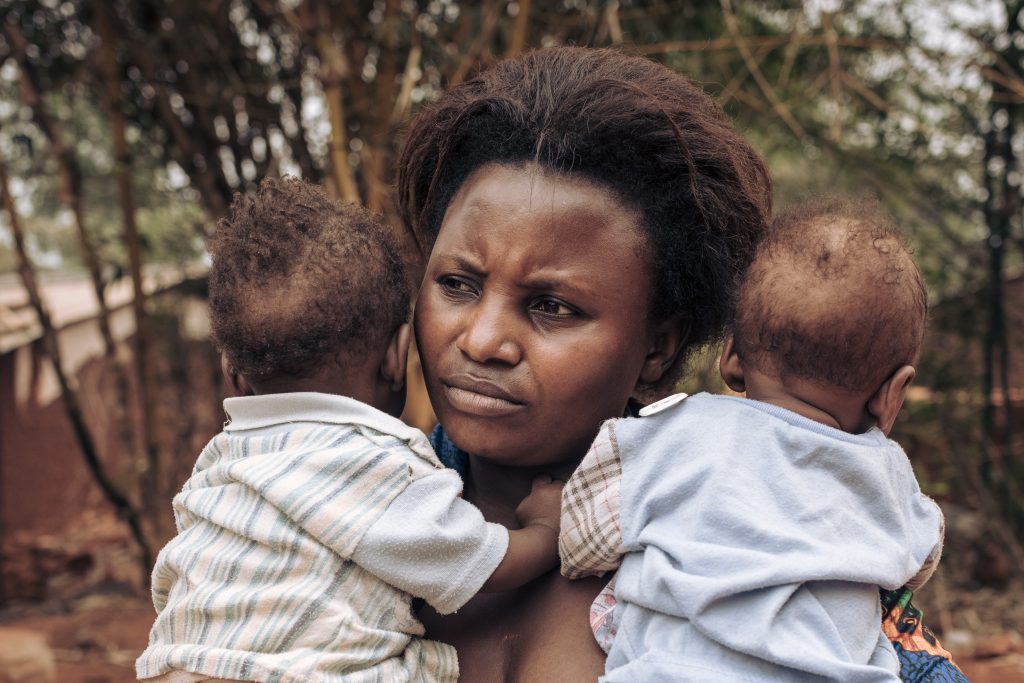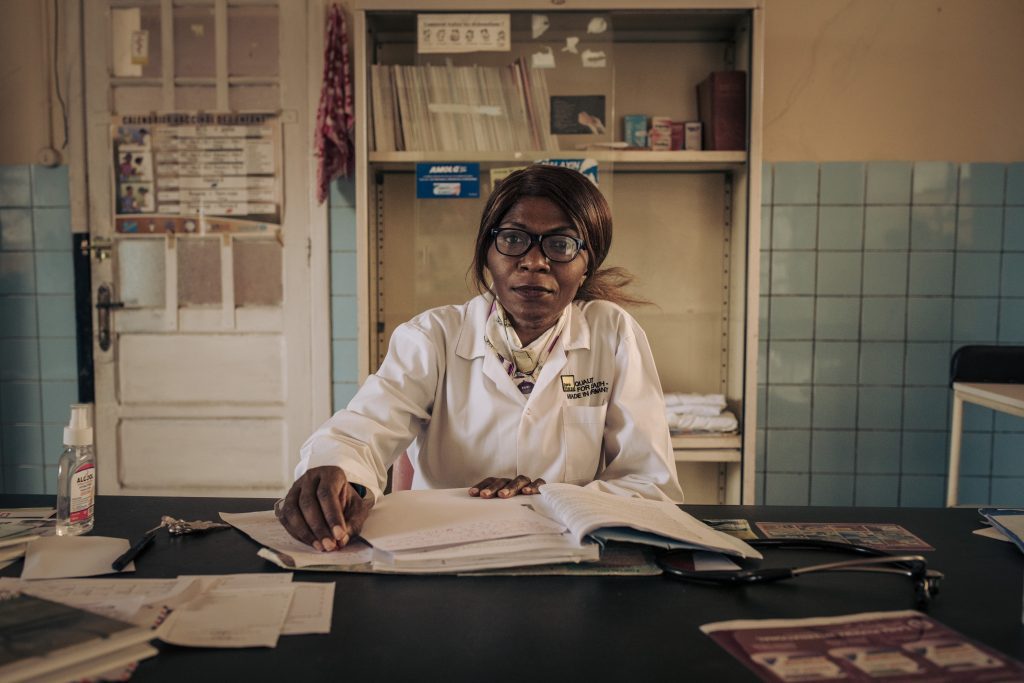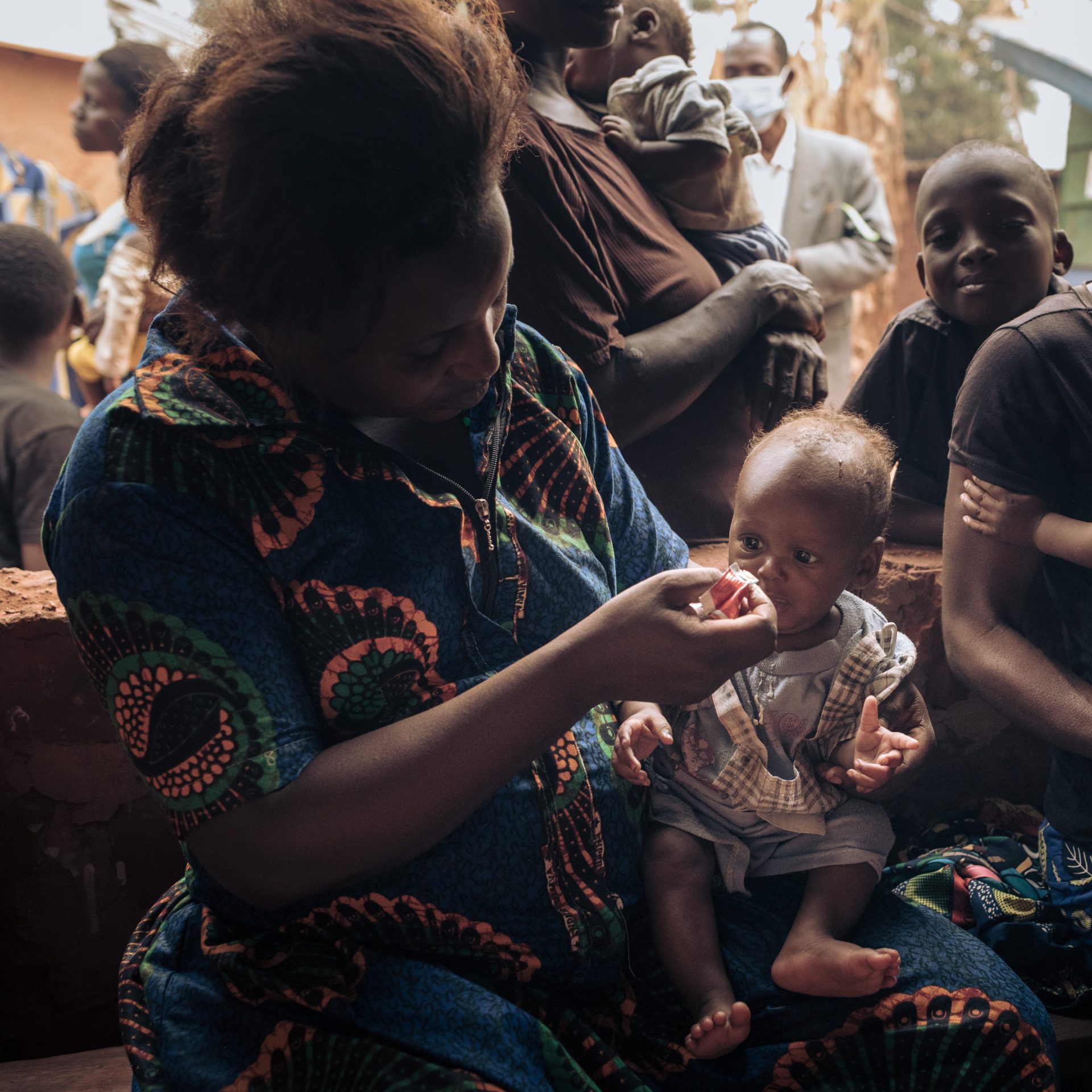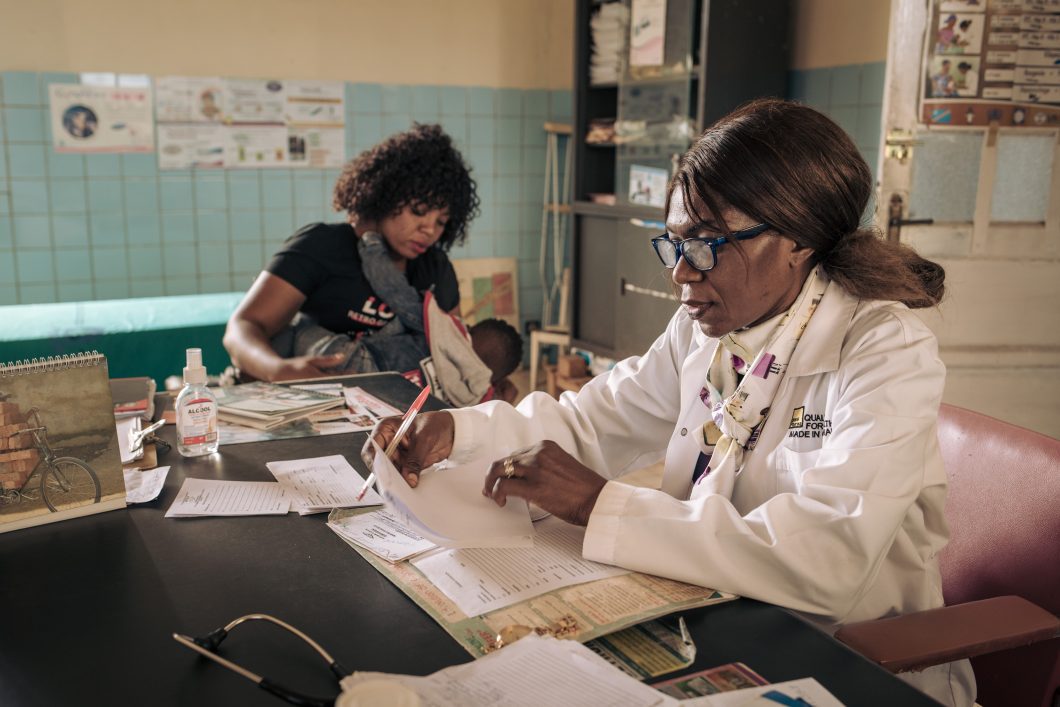In the Democratic Republic of Congo (DRC), mothers like Dorcas are struggling to keep their children alive.
In fact, 40% of children in the DRC are currently suffering from life-threatening hunger. Malnutrition is the leading cause of child mortality here, and it’s linked to almost half of deaths of children under five.
Dorcas lives in Mbuji-Mayi, the DRC’s third largest city. People here used to make a living mining for diamonds, but everyone lost their jobs when the large mining company collapsed. In need of an income, many tried to use their mining expertise on a smaller scale. But ill-equipped and without proper resources, some didn’t live to tell the tale.
When a serious injury at work left Dorcas’ husband bedbound, she was left to feed her 7-month-old twins with almost no income.
“After my twins were born, I had to take sacks of gravel to the river – it was my only way to make money. I needed to transport at least ten sacks to get 2,500 Congolese Francs [roughly 70p]. But that wasn’t enough to feed the whole family.”
Her son Kabongo began suffering from fever and diarrhoea, due to a lack of clean drinking water. Terrified, Dorcas brought him to one of our health centres in the area.

Dorcas, holding her 7-month-old twins Kabongo and Mpongo.
We provided urgent treatment for Kabongo as well as free meals for Dorcas. We gave Kabongo therapeutic milk and then a peanut paste packed full of nutrients to help him recover. He continues to get better by the day.
“If there were no free care at the health centre, there would be many deaths in my family.”
Stories like Kabongo’s remind us why we’re here. But there are many more families who urgently need support.
Here in the DRC many children won’t survive the coming months. Life is so precarious. Families have endured armed conflict and food shortages for years. Most people can’t access basic health services.

Prudence, head doctor of a paediatric healthcare centre in Mbuji-Mayi, sitting at her desk.
As the head doctor of a paediatric healthcare centre in Mbuji-Mayi, Dr Prudence knows the challenges facing families all too well.
“I’m from Mbuji-Mayi. I studied in the east, but I wanted to come home to look after people from around here. It’s my affection for our population that drives me to work here, at home. A lot of people are leaving, because of the crisis, but we have this willingness to stay with our population to help out”.
“When we go to the markets, whether it’s condiments, flour or beans, all the prices have skyrocketed”.
When you have no source of income and prices are rising, you can’t buy basic necessities. And when you can’t buy food, you and your family go hungry.
“On average, we can have up to 20 malnourished children per month”, says Dr Prudence.
But with support from Action Against Hunger, Dr Prudence’s paediatric unit is able to treat malnourished children with therapeutic milk so they can recover and go home. The emergency ward at the centre also helps children with severe medical complications.
The solutions are so simple. If we get to children like baby Kabongo with the right treatment at the right time, we can stop life-threatening hunger in its tracks.
If we don’t, then hunger will take many more children’s lives this year.



